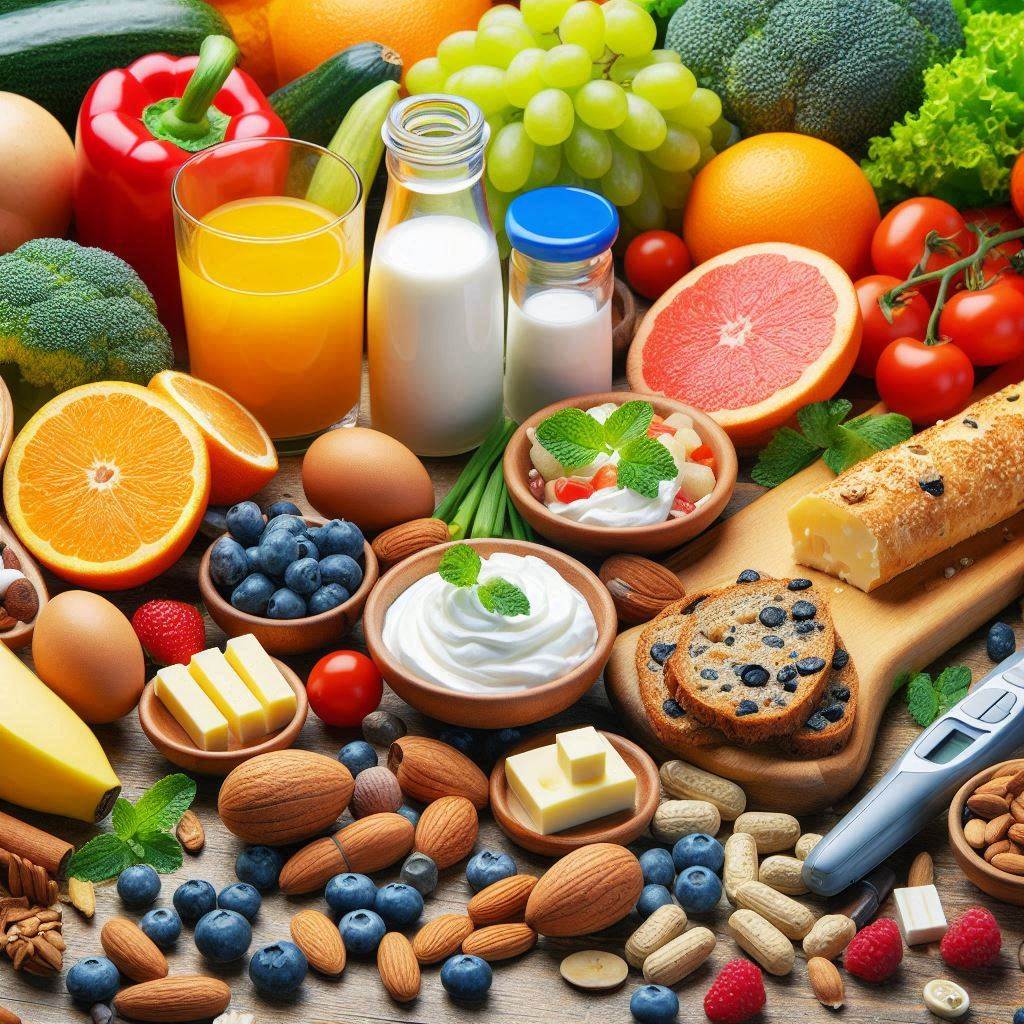Diabetes management relies heavily on making the right dietary choices. Certain foods help stabilize blood sugar, prevent spikes, and promote long-term health for those living with diabetes. A diabetes-friendly diet focuses on whole foods that are nutrient-dense, low in added sugars, and rich in fiber, healthy fats, and lean proteins. Below, we’ll explore the top foods to incorporate for natural blood sugar management and better health.

1. Leafy Green Vegetables
Leafy greens are low in calories and carbohydrates, making them an ideal choice for blood sugar control. They are packed with essential nutrients like vitamin C, potassium, and magnesium, as well as antioxidants, which help reduce inflammation and support healthy blood sugar levels. Studies suggest that eating leafy greens regularly may lower the risk of type 2 diabetes and aid in blood sugar management.
Examples: Spinach, kale, Swiss chard, and collard greens.
2. Fatty Fish
Fatty fish is an excellent source of omega-3 fatty acids, which support heart health—a critical factor for people with diabetes, as they’re more prone to cardiovascular complications. Omega-3s help reduce inflammation and improve cholesterol levels. Fish also provides high-quality protein that promotes satiety without causing blood sugar spikes.
Examples: Salmon, mackerel, sardines, and trout.
3. Whole Grains
Whole grains are better than refined grains for blood sugar management because they contain more fiber, which slows down digestion and helps prevent spikes in blood glucose. These grains have a low glycemic index (GI), meaning they have a gradual impact on blood sugar. Whole grains are also a good source of important nutrients like magnesium and B vitamins, which aid in energy metabolism.
Examples: Quinoa, barley, oats, whole-grain bread, and brown rice.
4. Beans and Legumes
Beans and legumes offer a mix of protein, fiber, and complex carbohydrates, which make them beneficial for diabetes management. Their high fiber content promotes a gradual rise in blood sugar, and studies show that regular consumption of legumes can improve blood sugar control and reduce the risk of heart disease. They are also nutrient-dense, containing magnesium, potassium, and iron.
Examples: Chickpeas, lentils, black beans, and kidney beans.
5. Berries
Berries are one of the best fruit choices for blood sugar management due to their low glycemic index and high fiber content. They’re also rich in antioxidants, which help reduce inflammation and support overall cellular health. The natural sweetness of berries makes them an excellent snack option or addition to meals without causing a sharp rise in blood sugar.
Examples: Blueberries, strawberries, raspberries, and blackberries.
6. Nuts and Seeds
Nuts and seeds are nutrient-dense foods with a low carbohydrate content, high in fiber, and packed with healthy fats. These healthy fats help manage blood sugar levels by improving insulin sensitivity. Additionally, nuts and seeds provide magnesium, a mineral that plays an important role in regulating blood glucose levels.
Examples: Almonds, walnuts, chia seeds, flaxseeds, and pumpkin seeds.
7. Greek Yogurt
Greek yogurt is a high-protein, low-carb option for people with diabetes. Its probiotics help support a healthy gut microbiome, which plays a role in blood sugar control and weight management. Studies show that regular yogurt consumption may be associated with lower blood sugar levels and a reduced risk of type 2 diabetes.
Choosing the Best Type: Opt for plain, unsweetened Greek yogurt to avoid added sugars that could spike blood sugar.
8. Sweet Potatoes
Sweet potatoes are a more nutritious option than regular potatoes, with a lower glycemic index and a high fiber content that helps stabilize blood sugar. They are also rich in beta-carotene, a powerful antioxidant, and offer a natural sweetness without contributing to blood sugar spikes.
Preparation Tips: Bake or roast sweet potatoes instead of frying, and keep the skin on to maximize fiber content.
9. Apples
Apples are a convenient, fiber-rich fruit with a low glycemic load, meaning they won’t spike blood sugar levels. They also contain beneficial antioxidants and polyphenols that support heart health, reduce insulin resistance, and improve blood sugar management.
Serving Suggestion: Pair apples with a handful of almonds or a tablespoon of peanut butter for a satisfying, balanced snack.
10. Garlic and Onions
Garlic and onions are both low in carbohydrates and add flavor to meals without impacting blood sugar. Garlic has been shown to improve fasting blood sugar levels, while onions contain antioxidants like quercetin that may help reduce insulin resistance. Both garlic and onions can contribute to heart health by lowering cholesterol levels.
Uses: Add minced garlic and onions to salads, soups, or roasted vegetables to enhance flavor and gain nutritional benefits.
11. Avocado
Avocados are rich in monounsaturated fats, which are heart-healthy and beneficial for blood sugar control. The healthy fats and high fiber content in avocados help improve insulin sensitivity and promote satiety. They also contain potassium and various vitamins, adding to their nutritional profile.
Serving Ideas: Add avocado slices to salads, sandwiches, or blend them into smoothies for a creamy texture.
12. Eggs
Eggs are a low-carb, high-protein food that promotes fullness and helps stabilize blood sugar levels. They contain antioxidants like lutein and zeaxanthin, which support eye health—an important factor for people with diabetes. Research also suggests that eggs may improve insulin sensitivity in people with type 2 diabetes.
Cooking Tips: Enjoy eggs boiled, poached, or scrambled; avoid frying in butter or oil to keep them heart-healthy.
Tips for a Diabetes-Friendly Diet
- Prioritize Fiber: Fiber slows down digestion, which helps prevent blood sugar spikes. Foods like vegetables, whole grains, and legumes are excellent fiber sources.
- Practice Portion Control: Even healthy foods can cause blood sugar elevations if eaten in large quantities. Portion control is key to managing diabetes.
- Limit Processed Foods and Added Sugars: Processed foods often contain refined sugars and unhealthy fats, which can contribute to blood sugar spikes and weight gain.
- Stay Hydrated: Drinking water throughout the day helps maintain blood sugar balance and supports kidney health, which is especially important for people with diabetes.
- Include Healthy Fats: Healthy fats, such as those in avocados, nuts, and olive oil, improve insulin sensitivity and help you feel fuller for longer.
- Eat Consistently: Regular meal timing can help prevent large fluctuations in blood sugar, making it easier to manage throughout the day.
Conclusion
Eating a balanced diet rich in whole, low-glycemic foods like leafy greens, fatty fish, berries, and whole grains can help stabilize blood sugar and improve overall health for people with diabetes. Incorporating these foods into a diabetes-friendly diet can support healthy blood sugar levels, reduce cravings, and promote heart health. Remember that individual needs vary, so it’s always best to consult with a healthcare provider or registered dietitian to personalize a dietary plan based on your specific health goals.
